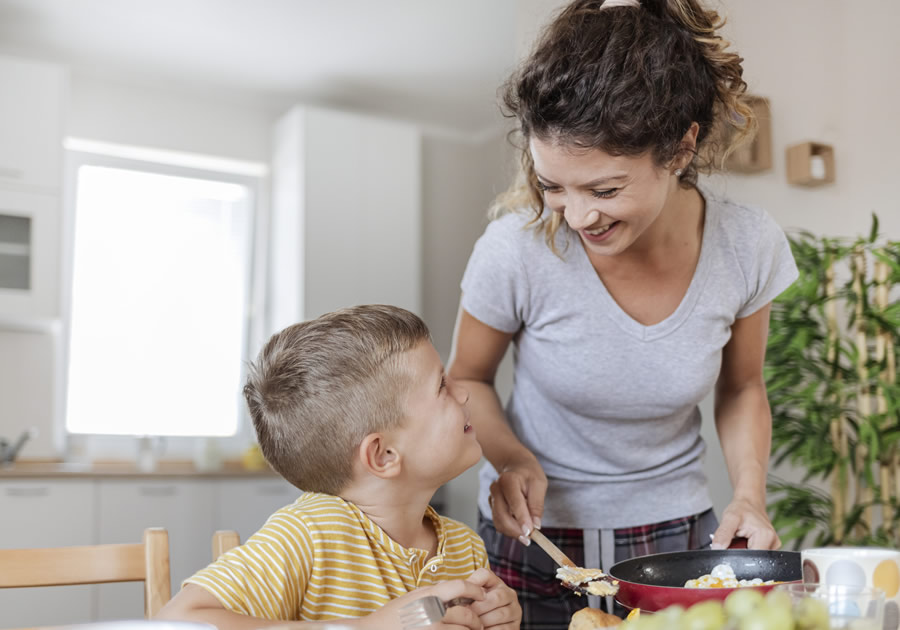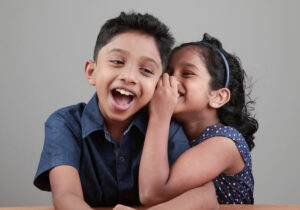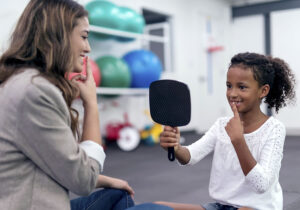By Emily Johnson MA, CCC-SLP
“What’s the magic word?” At what age should I teach my toddler please and thank you?
Being a Speech-Language Pathologist, I get this question a lot. It really is never too early to teach children good manners, even in infancy. The first step is to model good manners yourself during daily activities with your child no matter what age. Children learn vocabulary and manners from their surroundings across environments. When you’re speaking to other adults, you should use these phrases. Once your child is beginning to talk, around their first birthday, you can model please and thank you using their speech. For example, when your child requests ‘milk’ or ‘book’, reply back “milk please” or “book please”. As their language expands, continue to model. When they say “more milk”, you say “more milk please” and “I want more milk please”. Once a child is speaking in sentences, you can use the classic lines “What do you say?” or “What’s the magic word?”. Over time you may start to see them say it without your gentle reminders!
My child always says please and thank you- but that’s it.
For a child that is having difficulty producing language, your approach may be different. It is sweet that your child is so polite, however, if they say “please” instead of saying what they’re asking for, you may need to back up. While please and thank you are great manners, that is all they are. They do not have any actual meaning to communicate a want or a need. Saying please should not be a catch-all. A child may begin to think they only need to say one word to get whatever they’re wanting (i.e., a snack, toy, jacket, etc.). For example, when a child says “please” when they want a toy car, you can model “this is a car… you want the car, say car”. When they hold out their shoe and say “please” because they want you to put it on them, say “Help please. You want help putting on your shoe”. Once more meaningful language begins to emerge, continue modeling. When they say “please,” acknowledge them, “You said please! You want the car. Say want car please”.

My child will say it when prompted but not by themselves. Is there any hope?
Tired of saying “What do you say (all day)? We hope they’ll catch on. How can we support this? Once a child knows what they’re supposed to say and is able to say it, they still might not do it independently. Begin to phase out this prompt. When they ask for something, look at them, pause for a minute, and wait, and wait a little longer. When they look at you, they may be thinking- ‘hmm why are they not getting that for me, oh that’s right- “please!”
If you have any concerns about your child’s speech-language development, it is recommended to consult the expertise of a speech language pathologist. Early intervention matters.





